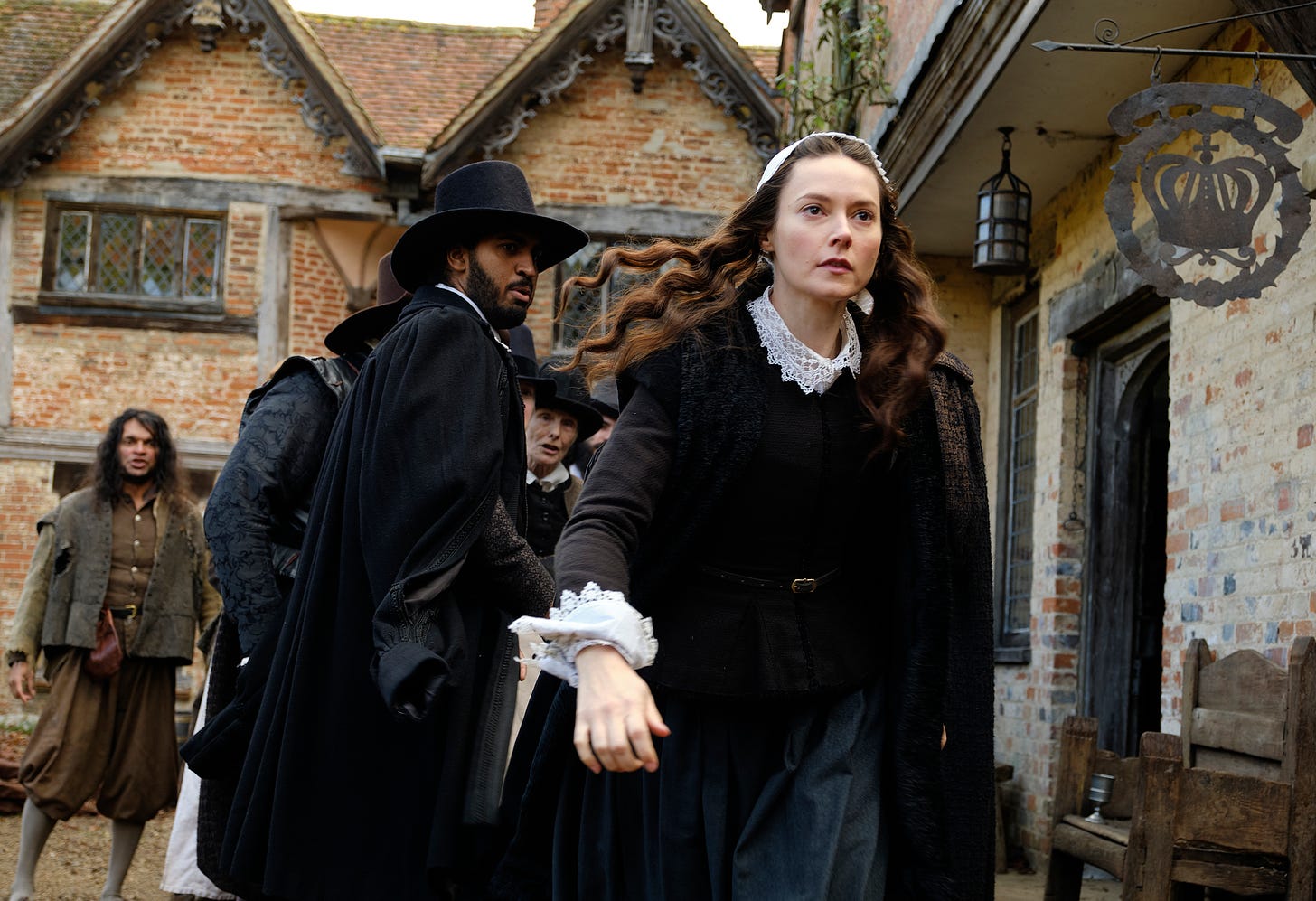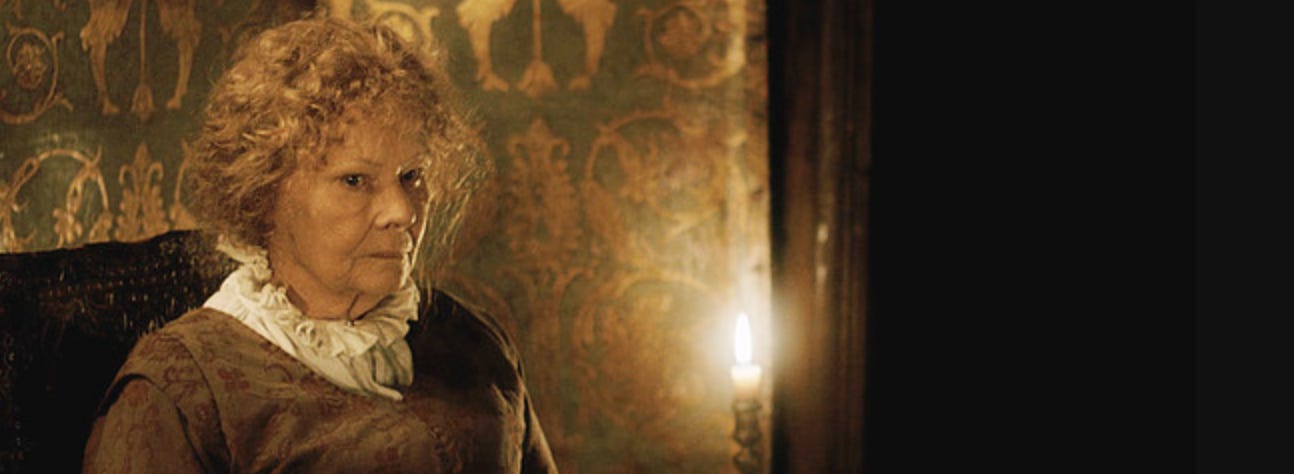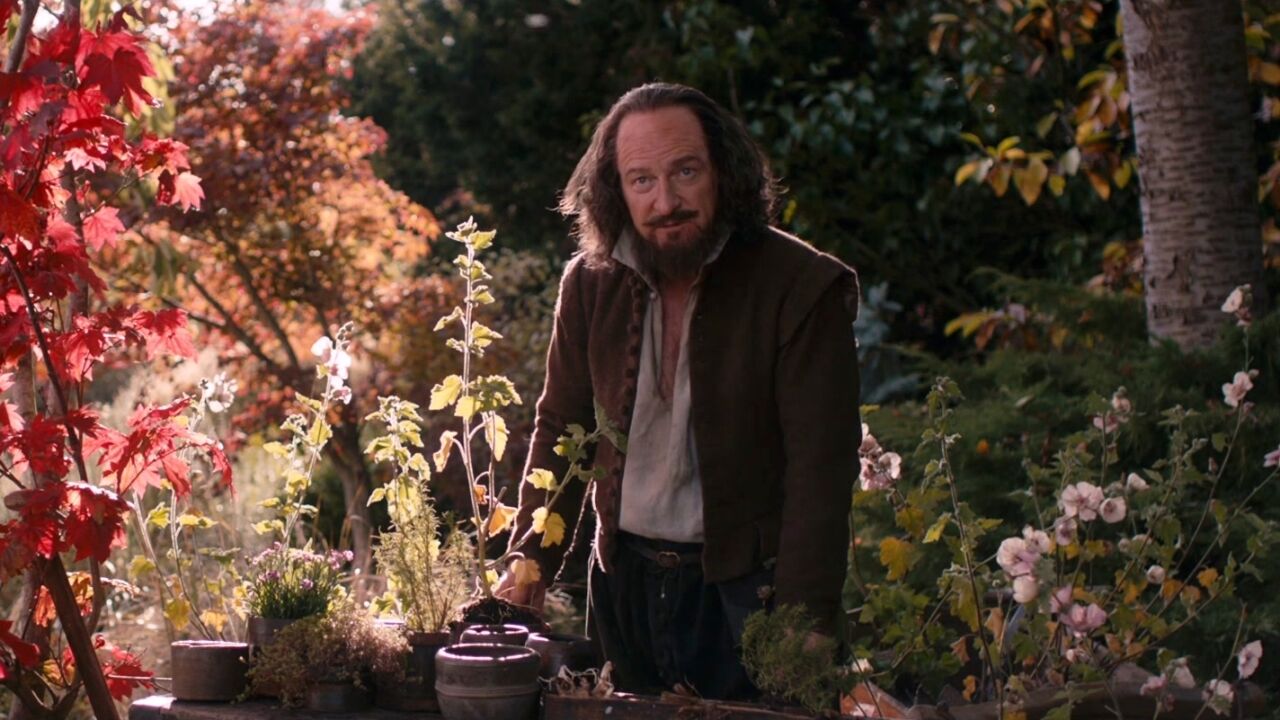I used to love Kenneth Branagh movies. Some of them I still love, deeply, and always will. But most of them belong to a moment that’s long past, a part of my childhood that will always be sacred, but to which I don’t long to return. I realize now that, instead of going through puberty at 13 like a normal person, I got into Shakespeare. My freshman year of high school, I was deep into the Branagh-verse. I watched every adaptation of his I could get my hands on, and most of them I liked. I appreciated that there was someone out there aiming to democratize Shakespeare by making lively film adaptations for people like me, who’d gotten used to reading the plays before seeing them staged.

Now I can see the flaws in them, but I don’t like them less. I still have a soft spot for his 84-hour Hamlet, even though it’s over-produced and in parts oddly cast. I appreciate his vaguely-homoerotic performance of Iago in his Othello. I even forgive him for miscasting Michael Keaton as Dogberry in Much Ado About Nothing when he would have made a better Benedick.
But the measure of a great filmmaker, I think, shouldn’t be entirely based on how well their films hold up. It’s whether or not they’ve grown in their interpretation over time. Have they allowed themselves to grow wise with age, or have they fallen into the trap of legacy filmmakers who, after a certain point, start using the medium of cinema to try and escape aging altogether.
2018’s All is True, a complicated movie about the final years of Shakespeare’s life, is a flawed film in many ways. But it’s an honest one. I think about it a lot, in the context of Shakespeare, in the context of Branagh, in the context of its status as an “end of life” movie.

It’s a frustrating movie, deliberately: All is True feels like it’s either a very good movie disguised as a bad movie, or a very bad movie disguised as a good one. There’s a third possibility of course: that it’s both.
I wanted this film to be everything that it was, but just a little bit less. Crackling, fire-lit scenes, the lack of a score, those long, static shots staged with the gravity and grimness of an Ibsen play. Great. But there’s a problem. This film is too quiet, too brooding, too ponderous for its own good. It’s a diaristic movie that prioritizes, even exalts the part of the writer’s conscience that is the most selfish and the least divine. It’s a movie about the pettiness and exhaustion of old age, and the rigidity it often engenders. Shakespeare, now finding himself King Lear’s age, discovers that he has come to inherit many of that character’s concerns. His thoughts turn to his progeny and how to exert that final bit of control over the people who will survive him: his family.

In All is True, Shakespeare tries his best to come to terms with the fact that his only son, 8-year-old Hamnet, is long dead, and the only heirs left are his two troubled daughters, one of which is having issues performing her gender to his liking. What to do when you become one of your most stubborn and unforgiving creations? What happens when you’re destined, in old age, not to become a Falstaffian jester, but a self-important Learian asshole? Shakespeare’s patience has run out—with the world, with time, with social conventions, and with his family. But he’s still grasping for control. He’s always been the author of his own story, the engineer of his own fate. Now, it would seem, fate has other plans for him. Aging is a necessary derailment for driven people. As such, he finds himself at a point when ambition must take a backseat. What will take its place?

All is True is about a million things, but most of all, it’s about a person learning—at an age when human traits seem to become more fixed and stubborn than ever—to bend without breaking.
Related:
Is Falstaff a Queer-Coded Character?
Shakespeare wasn’t shy about creating openly queer characters in his work…and coded ones too.
After the Globe Theater burns down during a performance of Henry VIII, the Bard returns to his hometown of Stratford-on-Avon, where his father was run out of town as a thief decades before. This is a town where you’re fined for not attending church. Where neighbors know every last piece of your business. And it holds some familiarity and comfort for him. It must, because this is the place where Shakespeare has decided to live out the rest of his life, despite the fact that he hates the place and its puritanical hypocrisy.

He has to be there, it’s where his wife (much cheated on) and two daughters (beleaguered) live. More importantly, it’s where his young son, Hamnet, died many years ago. Our Will is pretty hung up on this. He’s hung up on a lot of things. He’s still into his ex, the once-beautiful Earl of Southampton (Ian McKellen), assumed to be the Beautiful Boy of the sonnets. The Bard decides to channel his grief by planting a commemorative garden. That’s good news for us, because the gardening scenes are by far the best parts of the film. Watching Branagh, fake nose and all, explain to the neighbor’s dog which parts are ok to pee on and which parts aren’t, is a rare treat. And it’s those scenes that get to the essence of what’s going on here, far more than the family encounters. Because those scenes show you a man aging in real time. They show, without speaking, how priorities can change and be overridden as we age. And how the things we planned to let go of stay with us, and the things we planned to hold grudges about are mysteriously gone. We can wake up and suddenly find our priorities different, with no reason why. And that’s a subject we don’t hear about that often. Rather, we don’t see it on film. It’s not often that film is interested in the lives and internalities of the old and aging. American films, at least. For that kind of introspection, you have to go across the pond, where they’re much more fond of making movies about immovable old men and crusty aging women.

Again, I truly can’t tell whether All is True is actually a good movie. It could be a great movie for all I know. All I know is that it moved me deeply. I know that when Shakespeare’s daughter shouts at him “I know what you think a woman’s life should be,” I wanted to cheer for her. I know that the scenes with the whole family were absolutely perfect. But how much else can you know about a movie other than how it makes you feel?
This one hasn’t left my mind yet, and it’s been years.

Art is bizarre like that: something doesn’t have to be good to move you, and it doesn’t have to be timeless and important to get under your skin. It just has to be. And for all its Great Man heavy-handedness, this film has burrowed somewhere in me. I think about it a lot: its colors, its sounds, its pacing. The attention it pays to a part of history that no one seems to care about. The final lives of artists are always treated with such holiness, but here, Shakespeare is just a man. He’s frail, he’s aging, he’s regretful. It could be any of us, and probably will be, when the time comes.
Don't forget to share:
Help make sure LGBTQ+ stories are being told...
We can't rely on mainstream media to tell our stories. That's why we don't lock our articles behind a paywall. Will you support our mission with a contribution today?
Cancel anytime · Proudly LGBTQ+ owned and operated
Read More in Entertainment
The Latest on INTO
Subscribe to get a twice-weekly dose of queer news, updates, and insights from the INTO team.
in Your Inbox














